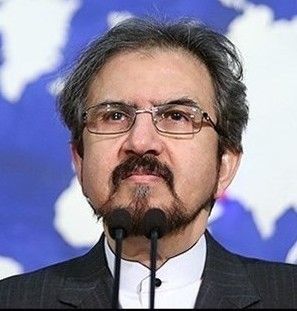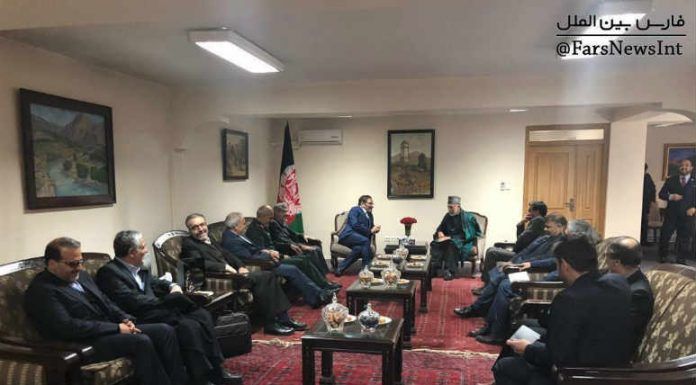DUBAI, Jan 7 (Reuters) – An aide to Iran‘s supreme leader said on Monday U.S. officials approached him during a December visit to Afghanistan to request talks with Tehran, Iran‘s semi-official Tasnim news agency reported, but the U.S. State Department denied the report.
Tensions between Iran and the United States have increased since May, when President Donald Trump abandoned a 2015 nuclear deal between Tehran and major powers and later reimposed sanctions on Iran that had been lifted under the pact.
“During my visit to Kabul last month, the Americans … asked to hold talks,” Ali Shamkhani, the secretary of Iran‘s Supreme National Security Council and a close aide to Iran‘s Supreme Leader Ayatollah Ali Khamenei, was quoted as saying, without specifying what the U.S. side wanted to discuss.
“This report is not accurate,” said a State Department spokeswoman on condition of anonymity.
While denying it made a specific overture to Shamkani, the spokeswoman repeated that Trump is open to a dialogue with Iran on “urgent national security issues” and wants Tehran to “make fundamental changes in their destructive behavior.”
Washington accuses Tehran of destabilizing the region by projecting its power via proxies in Syria, Iraq, Lebanon and Yemen.
In 2001, Iran worked with the United States to help set up a new Afghan government to replace the Taliban, which had been toppled by a U.S.-led military campaign following al Qaeda’s September 11 attacks on U.S. cities.
Shamkhani was in Kabul last month for talks with the Taliban “to help curb the security problems in Afghanistan.” He said the Kabul government had known of his talks with the Taliban.
Majority-Shi’ite Iran has long had close ties to Shi’ites in neighbouring Afghanistan whose militias have fought the Taliban’s Sunni militants.
Washington accuses Iran of trying to extend its influence in western Afghanistan by providing military training, financing and weapons to the Taliban, a charge Tehran denies.

Shamkhani’s comments came days after reports of talks between U.S. and Taliban officials over proposals for a ceasefire in Afghanistan and a future withdrawal of foreign troops ahead of possible peace negotiations.
Khamenei slapped down an offer of direct talks made by Trump last year and Iranian officials have said Washington’s crippling sanctions would fail to wreck the economy.
In July, Iranian authorities said Tehran had rejected eight U.S. requests for a meeting between Trump and President Hassan Rouhani on the sidelines of the U.N. General Assembly in Sept 2017.
(Additonal reporting by Lesley Wroughton and Arshad Mohammed in Washington Writing by Parisa Hafezi Editing by Gareth Jones and Tom Brown)


